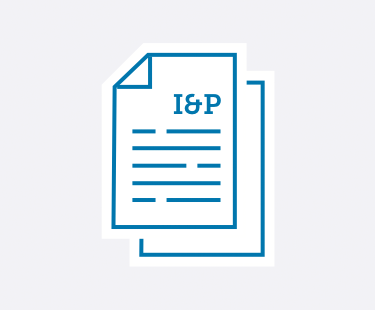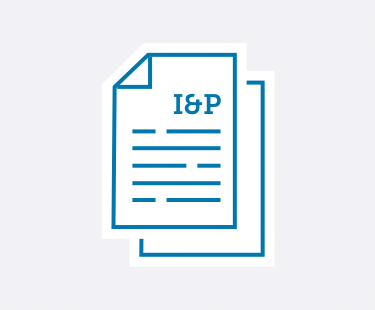

Learn practical strategies to handle emerging trends and leadership challenges in private schools.
No matter if you’re a School Head, Admission Director, Development Director, Board member, or any other private school administrator—Ideas & Perspectives®, ISM’s premier private school publication, has strategic solutions for the pervasive problems you face.
- Tuition not keeping pace with your expenses? In I&P, explore how to use strategic financial planning to create your budget and appropriately adjust your tuition.
- Enrollment dropping off? Discover how to implement the right admission and enrollment management strategies that engage your community—and fill your classrooms.
- Trouble retaining teachers? Learn how you can best support your teachers using ISM’s Comprehensive Faculty Development framework. Your faculty members will become more enthusiastic about their roles—which ultimately improves student outcomes.
- Fundraising campaigns not as successful as you’d hoped? Implement ISM’s practical advice and guidance to build a thriving annual fund, construct an effective capital campaign, and secure major donors—no matter your community size or location.
- Not sure how to provide professional development—for you and your staff? Learn ways to develop and fund a successful professional development strategy. You can improve teacher-centered satisfaction and growth, which in turn strengthens student-centered learning.
- Problematic schedule? You can master the challenges of scheduling with the help of ISM’s practical advice, based on our experience with hundreds of schools and our time-tested theories.
- And so much more.
I&P has shared targeted research, up-to-date insight, and sound theory with school leaders since 1975. More than 8,500 private school decision-makers find the answers to their schools’ administrative and governance matters in our advisory letter. We give you the strategic answers you need.
As an ISM Silver or Gold member, you not only receive issues online and in print 10 times a year, but you have access to 900+ articles in our web archive. Need help? It’s at your fingertips! Learn more and sign up for ISM's membership here.
Search
See the articles from our latest issue of Ideas & Perspectives.
Board Level Confusion: The School Head as Personnel Manager and Chief Fund Raiser
Volume 30 No. 9 // July 14, 2005
I have encountered numerous Trustees in recent years whose viewpoint on the School Head’s role can be summarized succinctly. The Head is to carry out the “vision” of the institution—usually an abstract list of descriptors, rather than a strategic plan—as developed and promulgated by the Board. Central to the Head’s fulfillment of this vision are, first, hiring—and especially firing—faculty and staff, and, second, raising all the money needed to address the physical components of the Board’s vision.
1. Already a member? Click here to login.
2. Not a member? Click here to become a member.
3. Not sure? We'll help you figure it out.
Limited Area, Moderate-Cost Space Reconfigurations
Volume 30 No. 8 // June 29, 2005
Many private-independent schools, especially those without high schools, find themselves on small parcels of land with little hope of purchasing contiguous acreage. Their leaders, searching for additional classroom space and buildings, are often staggered by the costs of buying land for a completely new (or second) campus. They are financially and emotionally defeated by the apparent alternative: relocating the school for a year or more, razing the buildings, and then returning to a campus that is fresh, exciting, and more functional.
1. Already a member? Click here to login.
2. Not a member? Click here to become a member.
3. Not sure? We'll help you figure it out.
The True Implications of a 'Breach of Contract' Lawsuit
Volume 30 No. 8 // June 29, 2005
In three recent cases, the Connecticut Superior Court handed down rulings that defined the nature of private-independent school enrollment contracts and upheld the school’s right to collect unpaid tuition. (The three Connecticut Superior Court cases were Hope Academy v. Gerald Friel, 2004 WL 1888909; Hope Academy v. Walz, 2004 WL 944550; and Hope Academy of Milford, Inc. v. Fortier, 2004 WL 94480.) All three cases involved the same school and had these similarities:
1. Already a member? Click here to login.
2. Not a member? Click here to become a member.
3. Not sure? We'll help you figure it out.
From Entrenched Faculty to Committed Teachers
Volume 30 No. 8 // June 29, 2005
How do you, as School Head or Division Head, get buy-in from “entrenched faculty” when you are anticipating an initiative? And what does the word entrenched mean? Assuming that these teachers are not toxic (those who drag down the faculty by their cynicism), you might describe them as rigid, fixed in their ways, unwilling to cooperate, skeptical about any kind of change, or always ready to oppose.
1. Already a member? Click here to login.
2. Not a member? Click here to become a member.
3. Not sure? We'll help you figure it out.
Revisit Your School's Policy Concerning Child Sexual Abuse
Volume 30 No. 7 // June 1, 2005
A recent draft report, “Educator Sexual Misconduct: A Synthesis of Existing Literature,” commissioned by the U.S. Education Department, concludes that, while far too little is known about the prevalence of sexual misconduct by school employees, likely millions of children—including those in private institutions—are being affected by such abuse during their school years. Although critics of the report say the numbers may be “a bit extreme,” the author maintains the report’s credibility, stressing that at the very least, the report shows that further study is needed, and that the issue of sexual abuse in schools cannot be taken lightly. ISM has long recommended that schools take clear steps toward preventing sexual abuse—both for the sake of their students and the long-term well-being of their institutions
1. Already a member? Click here to login.
2. Not a member? Click here to become a member.
3. Not sure? We'll help you figure it out.
The Head Support and Evaluation Committee: What Does 'Support' Actually Mean?
Volume 30 No. 7 // June 1, 2005
The Head Support and Evaluation Committee (HSEC) links the school's planning document (and Board agenda) to the School Head's plan. Once it is clear what the Head is being asked to do for the coming year, the question the committee must ask is: How can we support the Head to ensure success and thus the continued strategic motion of the school?
1. Already a member? Click here to login.
2. Not a member? Click here to become a member.
3. Not sure? We'll help you figure it out.
Managing Complex Change in Private-Independent Schools
Volume 30 No. 4 // March 31, 2005
When you know that a complex change is about to be presented at your school—maybe through a new strategic plan, the intent to introduce technology in a significant way, the addition of a new division, the building of a new art center, the reinvention of teaching practices in the middle school, or the production of a Parent Education Plan, as examples—focus not on the change itself, but on how that change is going to be implemented by real people.
1. Already a member? Click here to login.
2. Not a member? Click here to become a member.
3. Not sure? We'll help you figure it out.
A Comprehensive Development Model
Volume 30 No. 4 // March 31, 2005
The Board of Trustees has the duty to ensure the multi-generational, long-term success of the school by establishing and maintaining a comprehensive development infrastructure to support the school’s strategic and long range plans. Whether your school is large or small, new or old, day or boarding, elementary or K-12, ISM has found that success is built on having six key development elements securely in place. Your enhancements and big dreams will achieve realization through the income-producing, donor-centered programs of the Comprehensive Development Model, while your day-to-day operations expenses should be covered with tuition and other hard income.
1. Already a member? Click here to login.
2. Not a member? Click here to become a member.
3. Not sure? We'll help you figure it out.
Why You Should Have the Head of a Noncompeting School on Your Board
Volume 30 No. 3 // March 7, 2005
As Chair of the Committee on Trustees, you understand that one of your committee’s primary tasks is to identify, interview, and nominate new members whose capabilities fit the Board's profile. As your committee reviews the qualifications of potential members, be cognizant of a candidate who might be overlooked despite the implications of your Board profile template—the Head of a noncompeting school.
1. Already a member? Click here to login.
2. Not a member? Click here to become a member.
3. Not sure? We'll help you figure it out.
Focus on Your School's Unique Family Demographics
Volume 30 No. 3 // March 7, 2005
Private-independent schools are service organizations, designed by their missions to meet families’ educational needs. Yet schools seldom take the time to understand who their families really are and what they truly value. They also may not have a clear picture of what income brackets these constituents comprise.
1. Already a member? Click here to login.
2. Not a member? Click here to become a member.
3. Not sure? We'll help you figure it out.


